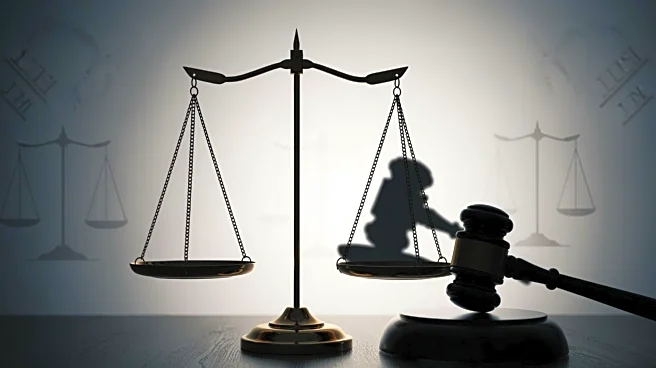What's Happening?
A federal judge has criticized the Justice Department's approach in prosecuting former FBI Director James Comey, highlighting concerns over the department's 'indict first, investigate second' strategy. Magistrate Judge William Fitzpatrick ordered the DOJ
to provide all grand jury evidence and materials to Comey's legal team, emphasizing the unusual nature of the prosecution. Comey faces charges of making false statements and obstruction of justice related to his Senate testimony about media leaks during his tenure as FBI director. The case involves data collected during a previous DOJ investigation known as 'Arctic Haze,' which examined leaks concerning the FBI's probe into Hillary Clinton's email server. The judge's order aims to ensure Comey's legal team can access potentially privileged information.
Why It's Important?
The judge's criticism of the DOJ's handling of the Comey case underscores potential issues within the department's prosecutorial practices, which could have broader implications for legal standards and government accountability. The case highlights tensions between the DOJ and former government officials, raising questions about the influence of political pressure on legal proceedings. The outcome of this case could impact public trust in the justice system and set precedents for how similar cases are handled in the future. The scrutiny of the DOJ's methods may lead to calls for reform and increased transparency in federal prosecutions.
What's Next?
The DOJ is required to comply with the judge's order to provide evidence to Comey's legal team, which may lead to further legal challenges and scrutiny of the department's practices. The case could prompt discussions among lawmakers and legal experts about the need for changes in prosecutorial procedures and the balance between political influence and judicial independence. The resolution of privilege claims and the handling of classified information will be critical in determining the case's progression and its implications for future legal standards.
















